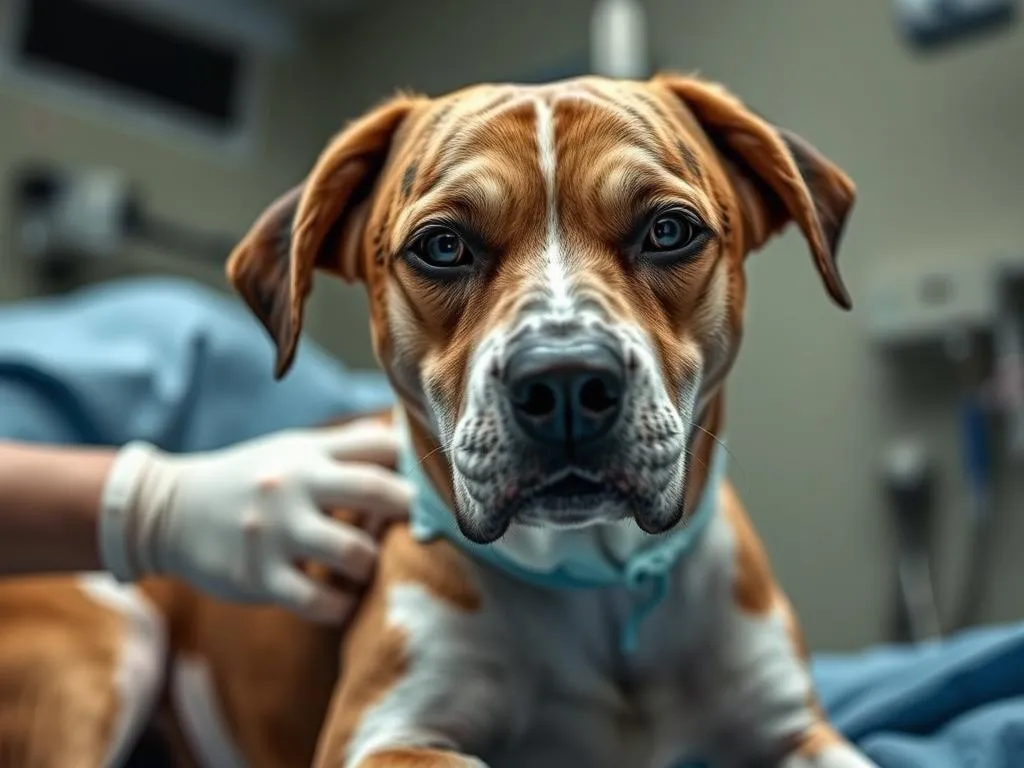
Introduction
Dog health care is a vital aspect of responsible pet ownership, encompassing everything from routine check-ups to specialized treatments. One condition that often requires surgical intervention is a hernia. It’s essential for pet owners to recognize and address hernias in dogs promptly, as they can lead to serious health complications if left untreated. Hernia surgery is a common procedure that can help alleviate these issues and restore your dog’s health.
In this article, we will delve into the specifics of hernias in dogs, discussing their types, causes, and the importance of surgical intervention. We will also provide a detailed breakdown of how much does hernia surgery for dogs cost, including factors that influence the price and available financial assistance options.
Understanding Hernias in Dogs
What is a Hernia?
A hernia occurs when an organ or tissue protrudes through an abnormal opening in the body. In dogs, hernias can manifest in various forms, including:
- Inguinal Hernia: Occurs in the groin area.
- Umbilical Hernia: Develops around the belly button.
- Diaphragmatic Hernia: Affects the diaphragm, allowing abdominal organs to enter the chest cavity.
- Perineal Hernia: Occurs in the area around the anus.
Symptoms of hernias in dogs can vary based on their type but may include swelling, pain, vomiting, and difficulty in bowel movements. If you observe any unusual signs in your dog, it is crucial to consult a veterinarian promptly.
Causes and Risk Factors
Several factors can contribute to the development of hernias in dogs:
- Congenital Defects: Some dogs are born with hernias.
- Trauma: Injury to the abdominal wall can lead to hernia formation.
- Increased Abdominal Pressure: Conditions that increase pressure, such as obesity or pregnancy, can also be culprits.
Certain breeds are more predisposed to hernias, including Bulldogs, Boxers, and Dachshunds. Additionally, older dogs and those with underlying health issues may be at higher risk.
The Importance of Hernia Surgery
Why Surgery is Necessary
Hernia surgery is often essential for several reasons:
- Potential Complications: Untreated hernias can lead to serious complications, such as strangulation of the intestine, which can be life-threatening.
- Benefits of Surgical Intervention: Surgery can effectively correct the hernia, alleviate pain, and prevent future complications.
- Recovery Expectations: While recovery times can vary, most dogs return to their normal activities within a few weeks post-surgery with proper care.
Alternatives to Surgery
In some cases, non-surgical management options may be available. For instance, small umbilical hernias in puppies might close on their own. However, these cases should be evaluated by a veterinarian to determine the best course of action. It’s important to note that surgery is generally recommended for most hernias to prevent future complications.
Cost Breakdown of Hernia Surgery for Dogs
Average Cost Estimates
The cost of hernia surgery for dogs can vary widely depending on several factors. On average, pet owners can expect to pay between $300 and $3,000 for the procedure. The national average typically falls around $800 to $1,500.
Factors Influencing Surgery Costs
Several elements can influence the cost of hernia surgery:
- Type of Hernia: Different types of hernias may have different surgical complexities and costs. For example, inguinal hernias may require more intricate procedures compared to umbilical hernias.
- Severity and Complexity: More severe or complicated hernias may necessitate additional surgical time and resources, increasing costs.
- Pre-operative Tests and Diagnostics: Before surgery, your veterinarian may recommend tests such as X-rays or blood work, which can add to the overall expense.
- Post-operative Care and Medications: Follow-up care, including pain management and medications, can also contribute to the total cost.
- Length of Stay at the Veterinary Clinic: If your dog requires an overnight stay or additional monitoring, this can increase the overall price.
Hidden Costs to Consider
In addition to the upfront costs of surgery, there are potential hidden expenses to keep in mind:
- Follow-up Visits and Check-ups: Post-surgery visits are essential for monitoring recovery and can add to costs.
- Potential Complications and Additional Treatments: If complications arise, further treatments may be necessary.
- Long-term Care and Monitoring: Depending on your dog’s health and the type of hernia, ongoing care may be required.
Financial Assistance and Payment Options
Pet Insurance
Pet insurance can be a valuable resource for covering veterinary expenses, including hernia surgery for dogs. When choosing a pet insurance plan, review the coverage details to ensure that hernia surgery is included. Many plans have waiting periods and exclusions, so it’s essential to select a policy that meets your needs.
Payment Plans and Financing Options
Many veterinary clinics offer payment plans that allow pet owners to spread the cost of surgery over time. Additionally, third-party financing options are available to help manage medical expenses. Research these options early to determine what works best for your financial situation.
Charitable Organizations and Resources
Several non-profit organizations assist pet owners in need of financial aid for veterinary costs. Research local and national organizations that may provide support for pet surgeries, including hernia repairs.
Preparing for Your Dog’s Hernia Surgery
Pre-Surgery Consultation
Before the surgery, schedule a consultation with your veterinarian. This is an excellent opportunity to ask questions about the procedure, recovery expectations, and any concerns you may have. Additionally, you’ll need to prepare your dog for surgery, which may include:
- Fasting: Your veterinarian will provide specific instructions regarding food and water restrictions before surgery.
- Medications: Discuss any medications your dog is currently taking, as some may need to be paused.
Day of Surgery
On the day of the procedure, you should expect:
- Arrival Time: Arrive at the clinic as directed.
- Surgery Duration: Hernia surgery typically lasts between 30 minutes to several hours, depending on the complexity of the case.
Post-Operative Care
After surgery, it’s essential to provide immediate care for your dog. Here are some post-operative care tips:
- Monitoring Recovery: Keep an eye on your dog for signs of complications such as excessive swelling, bleeding, or lethargy.
- Follow-Up Appointments: Attend all scheduled follow-up visits to ensure proper healing.
- Long-Term Care: Follow your veterinarian’s instructions regarding activity restrictions, diet, and medications to support recovery.
Conclusion
Understanding how much does hernia surgery for dogs cost is crucial for pet owners who want to ensure the health and well-being of their furry companions. Recognizing the signs of hernias and seeking timely veterinary care can prevent severe complications. Staying informed about the costs involved, financing options, and post-operative care will help you make the best decisions for your dog’s health.
Being proactive in your dog’s health care not only leads to better outcomes but also strengthens your bond with your pet, ensuring they live a long, happy life. Always consult your veterinarian for personalized advice and care tailored to your dog’s specific needs.









